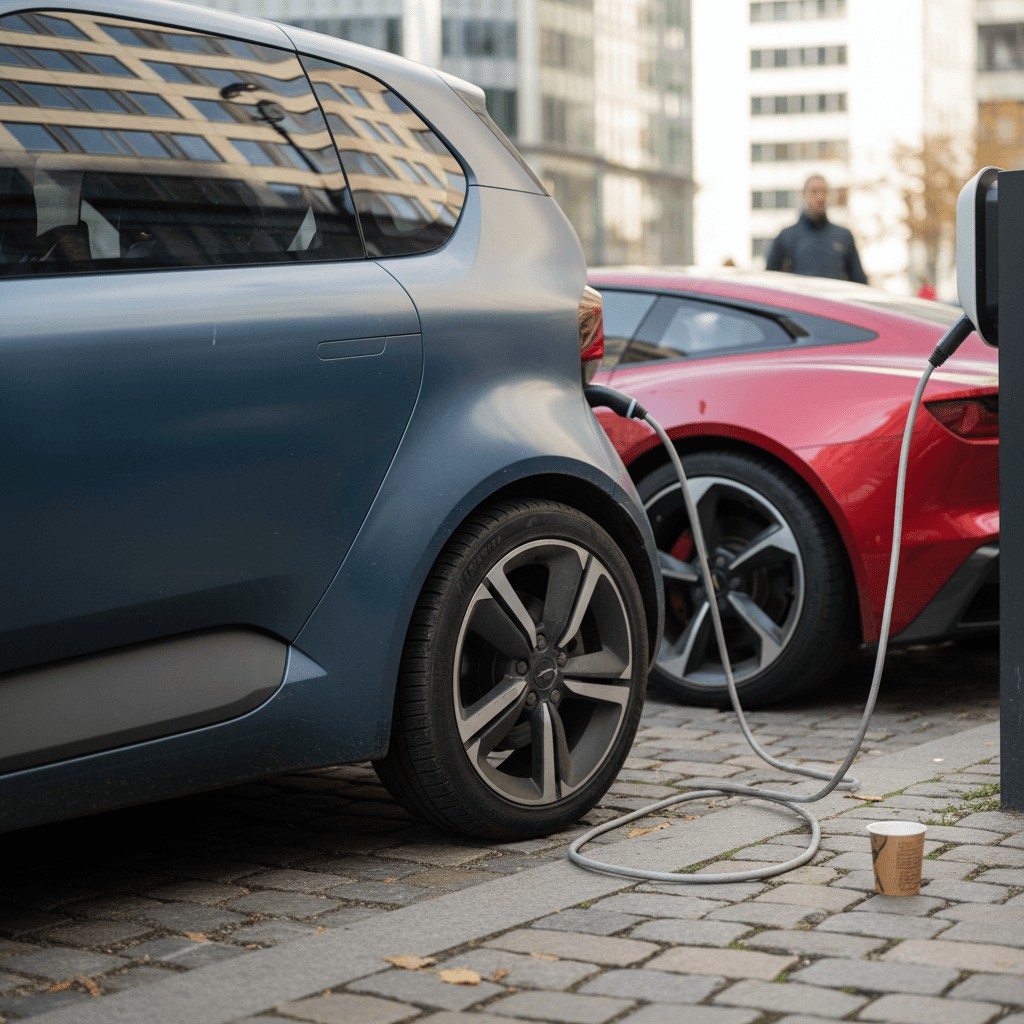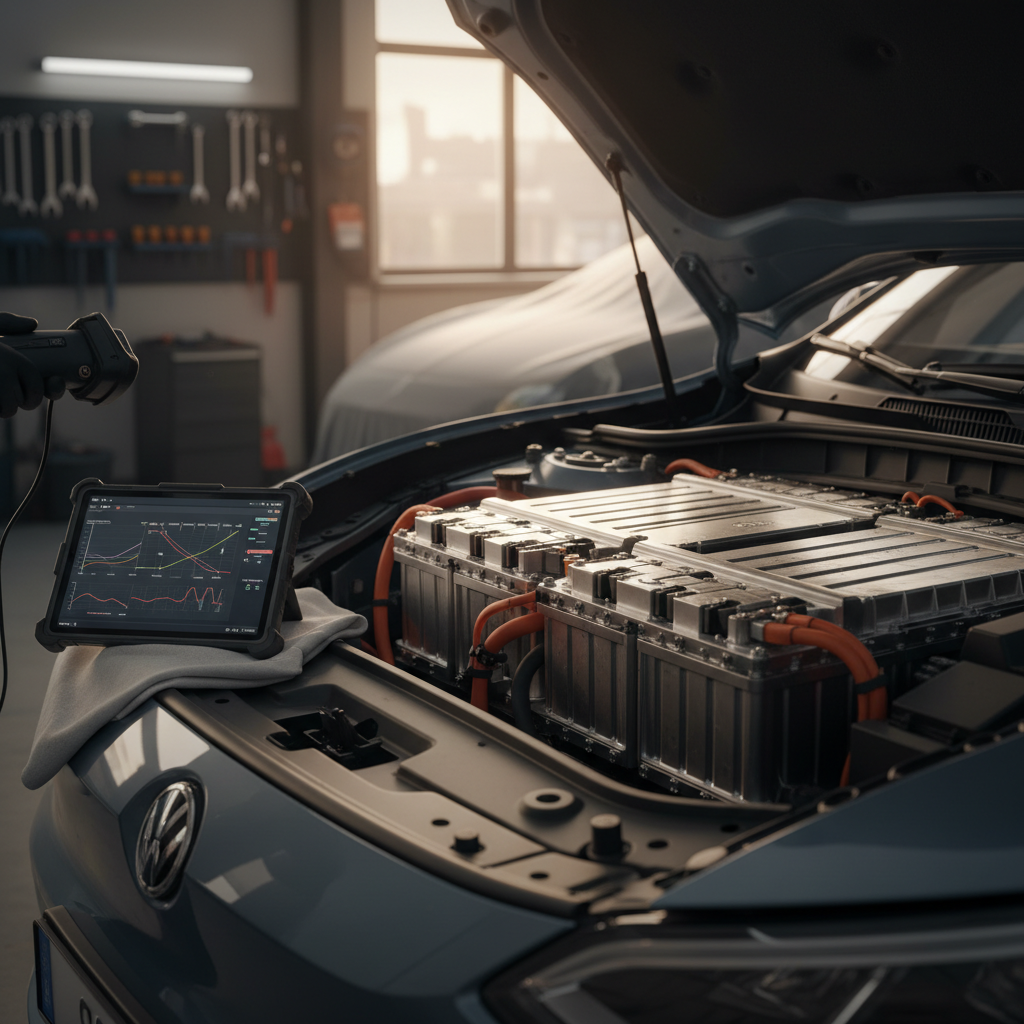Type “small SUV for sale near me” into any search bar and you’ll get a blizzard of crossovers, electrics, hybrids, and rental returns you’ve never heard of. Some are gems. Some are future service-department punchlines. The trick in 2025 is knowing which is which, especially if you’re looking at electric and hybrid small SUVs that promise big savings but come with new questions about batteries and charging.
The big shift
Why small SUVs are the 2025 sweet spot

What you get in a small SUV (that sedans and big SUVs miss)
The Goldilocks zone of everyday usability.
City-sized footprint
Better efficiency
Ride height & safety feel
Electrification has only sharpened the appeal. A compact electric SUV like the Chevrolet Equinox EV or Hyundai Kona Electric can deliver over 300 miles of range in some trims, yet still feel approachable and easy to maneuver around town. For a lot of households, a small SUV is no longer the “second car”, it’s the main act.
“Small SUV for sale near me”: what that search really means
What you’re actually asking
When you search for a small SUV for sale near me, you’re really asking three questions:
- What fits my life? Kids, dogs, sports gear, apartment parking, snow…
- What can I afford monthly? Not just sticker price, but payment, fuel, and maintenance.
- Where’s the best match within driving distance? Or, increasingly, who will deliver it to me?
Why “near me” matters less than it used to
In 2025, "near me" is more about service and support than physical lot distance. A used EV SUV can be delivered across the country, but you still need:
- Trusted battery health data
- Clear vehicle history
- Fair market pricing
- Help with charging questions
That’s exactly the gap companies like Recharged are built to fill, nationwide delivery backed by EV specialists, not just generic used-car sales.
Search smarter, not just closer
Best small electric SUVs to shortlist in 2025
The small electric SUV field went from curiosity to crowd scene almost overnight. While availability will vary in your area, a few nameplates keep showing up on “best compact EV” lists thanks to range, charging speed, and general livability.
Why small electric SUVs are getting hard to ignore
Compact electric SUVs worth hunting for (new or used)
Representative 2024–2026 models you’re likely to encounter on dealer lots and used EV marketplaces.
| Model | Type | Est. EPA Range (mi) | Notable Strengths |
|---|---|---|---|
| Chevrolet Equinox EV | Electric | ~300+ | Strong value, long range, family-friendly interior |
| Hyundai Kona Electric | Electric | ~260 | City-friendly size, good efficiency |
| Kia Niro EV | Electric | ~240 | Practical, roomy cargo area |
| VW ID.4 | Electric | ~250 | Spacious cabin, smooth ride |
| Hyundai Ioniq 5 | Electric | ~270–300 | Ultra-fast charging, standout styling |
| Kia EV6 | Electric | ~270–300 | Sporty drive, long-range options |
Exact specs vary by trim and model year; always verify range and charging on the specific vehicle you’re considering.
Used EVs: trim and battery matter
If you’re browsing a site like Recharged, this is where a Recharged Score Report pays for itself. It rolls battery diagnostics, history, and market pricing into a single view so you can compare a used Kona Electric in your state with a Niro EV three states over, apples to apples.
Should you consider hybrid or gas small SUVs?
Not everyone is ready to go fully electric, and that’s fine. Plug-in hybrids (PHEVs) and efficient gas small SUVs still make sense for some drivers, especially if charging at home isn’t realistic yet.
- Hybrid small SUVs (think Kia Niro Hybrid, Toyota RAV4 Hybrid) sip fuel and feel familiar to drive. They’re great if you rack up highway miles and don’t want to think about charging.
- Plug‑in hybrids give you 20–40 miles of electric-only range for errands, then fall back to gas on road trips. Good if your commute is short but public charging is sparse.
- Gas-only small SUVs are increasingly the “safe, known quantity” cars for shoppers who don’t want to change their routine at all, but they also lock in gas costs and more frequent maintenance.
Where gas-only can backfire
How to shop local dealers vs. online marketplaces
The old play was simple: hit three nearby dealers, pick your favorite color, try to ignore the F&I office. In the EV era, where battery health matters more than paint, the math changes. Local still has advantages, so do specialized online marketplaces.
Local dealers & used lots
- Pros: Immediate test drives, face-to-face negotiation, potential same-day delivery.
- Cons: Limited EV inventory, sales staff who may know more about leather packages than kilowatts, and almost never any formal battery health report.
If you shop locally, ask specific EV questions: battery warranty status, DC fast‑charge history, and whether they’ll let you get an independent EV inspection.
Online EV marketplaces
- Pros: Much wider selection of electric small SUVs, transparent pricing, and digital paperwork.
- Recharged advantage: Every vehicle comes with a Recharged Score, expert EV support, and nationwide delivery, plus the option to trade in your current car or get an instant offer.
- Cons: You can’t walk the lot, so photos, reports, and return policies matter more.
Look for a clear return window and robust condition reports, Recharged, for instance, offers a 7‑day money‑back guarantee to make buying sight‑unseen feel less like a leap of faith.

Inspecting a used small EV SUV like a pro
A small electric SUV is just a normal car with a different heart. You still care about tires, brakes, and prior accidents, but the battery and charging hardware are the headline act. Here’s how to approach your search like you’re grading a term paper, not swiping on a dating app.
7-step checklist for a used small EV SUV
1. Start with battery health
On a marketplace like Recharged, review the <strong>battery health score</strong> first. Look for clear data on state of health, estimated range vs original, and DC fast‑charging history. If you’re at a local lot and they can’t show you anything concrete, treat that as a red flag.
2. Verify usable range for your reality
Ignore the headline number on the window sticker and ask: "What’s the <strong>realistic range at 70 mph with climate control on</strong>?" If possible, test drive at highway speeds and watch the range meter.
3. Check charging compatibility
Make sure the SUV’s charge port and included cable match how you’ll actually charge. In North America, newer EVs are moving to the <strong>NACS (Tesla) connector</strong>, while many current models still use CCS. If you live in an apartment, plan around nearby DC fast chargers.
4. Study vehicle history & accidents
EVs handle minor fender‑benders well, but a major structural or pack-area hit is a different story. Read the history report carefully; if a prior accident involved the floorpan, ask who repaired it and how the battery was inspected.
5. Inspect tires and brakes
Electric small SUVs are heavy and torquey. That extra weight can wear tires and suspension faster than you’re used to. Uneven tire wear can hint at alignment issues or curb kisses; squeals or shudders under braking deserve a second look.
6. Test every driver-assist feature
Adaptive cruise, lane keeping, parking sensors, these systems define the daily driving experience. Turn them all on during the test drive. Glitches can be a sign of sensors replaced after collision work or software that’s overdue for an update.
7. Confirm warranties and support
Most EVs still carry an <strong>8-year/100,000-mile battery warranty</strong> from new. Check the in‑service date and mileage to see what’s left, and ask how warranty work is handled in your area.
Where Recharged helps here
Financing and total cost of ownership
Two shoppers can buy the same small SUV and live with wildly different costs. The difference isn’t just the interest rate, it’s energy prices, maintenance, insurance, and how you charge.
Compare the money: gas vs hybrid vs electric small SUV
Think in years, not just down payment.
Gas small SUV
- Lower purchase price on older used models
- Higher monthly fuel cost, especially if you commute far
- Regular oil changes, spark plugs, more moving parts
Hybrid small SUV
- Often slightly higher upfront price vs gas
- Real-world fuel savings, especially in city driving
- Battery is smaller and cheaper than full EV packs
Electric small SUV
- Potentially higher sticker, but much lower energy and maintenance
- Home charging is dramatically cheaper per mile than gas
- No oil changes, fewer wear parts
Run the numbers for your zip code
Recharged also offers financing with pre-qualification that doesn’t hit your credit. That means you can sanity-check what a $30,000 versus a $38,000 small SUV really does to your payment before you fall in love with a specific car.
How Recharged simplifies buying a small EV SUV
If you’re coming out of a gas crossover, the jump to an electric small SUV can feel like changing smartphone ecosystems: exciting, but full of new jargon and ways to make expensive mistakes. Recharged exists to remove as much of that friction as possible.
What you get when you shop small SUVs with Recharged
Less guesswork, more confidence.
Recharged Score battery health
Fair market pricing
Nationwide delivery & trade‑in
Prefer to kick the tires in person? Recharged also operates an Experience Center in Richmond, VA, where you can see vehicles, talk with EV specialists, and even drop off a car you’re selling or trading in.
FAQ: small SUV for sale near me
Frequently asked questions about small SUVs near you
Key takeaways before you go test-drive
When you type “small SUV for sale near me,” you’re not just shopping for sheetmetal. You’re choosing a daily companion that will handle commutes, Costco, weather, and the occasional life curveball for years. The smartest move in 2025 is to treat electrification as a feature, not a fad: at least cross‑shop a small electric or hybrid SUV against any gas model you’re considering.
- Define your reality first: parking, commute length, and charging access will narrow the field faster than trim names.
- Shortlist a few strong small SUVs, electric and hybrid, then compare total cost of ownership, not just the sticker.
- On used EVs, make the battery your first question, not an afterthought. Demand real diagnostics, not just “the range seems fine.”
- Consider buying through an EV‑focused platform like Recharged so you get a Recharged Score Report, fair market pricing, and EV‑savvy support from first search to final signature.
Do those things, and “near me” stops being a limitation. It becomes a filter, and the start of a much smarter search for the small SUV that actually deserves to live in your driveway.


